Related Research Articles

macOS, originally Mac OS X, previously shortened as OS X, is a Unix-like operating system developed and marketed by Apple since 2001. It is the primary operating system for Apple's Mac computers. Within the market of desktop and laptop computers, it is the second most widely used desktop OS, after Microsoft Windows and ahead of all Linux distributions, including ChromeOS and SteamOS. As of 2024, the most recent release of macOS is macOS 15 Sequoia, the 21st major version of macOS.

Safari is a web browser developed by Apple. It is built into several of Apple's operating systems, including macOS, iOS, iPadOS and visionOS, and uses Apple's open-source browser engine WebKit, which was derived from KHTML.
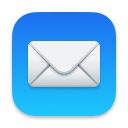
Mail is an email client included by Apple Inc. with its operating systems macOS, iOS, iPadOS, watchOS, and visionOS. Mail grew out of NeXTMail, which was originally developed by NeXT as part of its NeXTSTEP operating system, after Apple's acquisition of NeXT in 1997.

Single sign-on (SSO) is an authentication scheme that allows a user to log in with a single SSO ID to any of several related, yet independent, software systems.

Keychain is a password management system developed by Apple for macOS. It was introduced with Mac OS 8.6, and was included in all subsequent versions of the operating system, as well as in iOS. A keychain can contain various types of data: passwords, private keys, certificates, and secure notes. Some data, primarily passwords, in the Keychain are visible and editable using a user-friendly interface in Passwords, a built in app in macOS Sequoia and iOS 18 and available in System Settings/Settings in earlier versions of Apple's operating systems.

iOS is a mobile operating system developed by Apple exclusively for its mobile devices. It was unveiled in January 2007 for the first-generation iPhone, which launched in June 2007. Major versions of iOS are released annually; the current stable version, iOS 18, was released to the public on September 16, 2024.
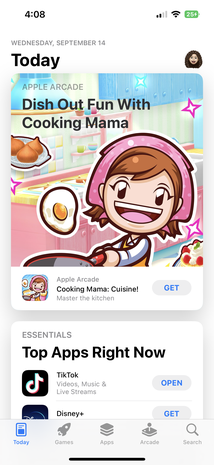
The App Store is an app marketplace developed and maintained by Apple, for mobile apps on its iOS and iPadOS operating systems. The store allows users to browse and download approved apps developed within Apple's iOS SDK. Apps can be downloaded on the iPhone, iPod Touch, or iPad, and some can be transferred to the Apple Watch smartwatch or 4th-generation or newer Apple TVs as extensions of iPhone apps.
Apple Account, formerly known as Apple ID, is a user account by Apple for their devices and software. Apple Accounts contain the user's personal data and settings, and when an Apple Account is used to log in to an Apple device, the device will automatically use the data and settings associated with the Apple Account.
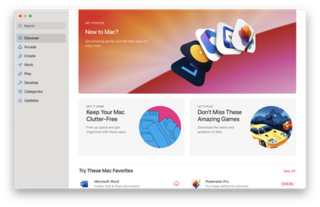
The Mac App Store is a digital distribution platform for macOS apps, often referred to as Mac apps, created and maintained by Apple Inc. The platform was announced on October 20, 2010, at Apple's "Back to the Mac" event. Apple began accepting app submissions from registered developers on November 3, 2010, in preparation for its launch.

iCloud is a cloud service operated by Apple Inc. Launched on October 12, 2011, iCloud enables users to store and sync data across devices, including Apple Mail, Apple Calendar, Apple Photos, Apple Notes, contacts, settings, backups, and files, to collaborate with other users, and track assets through Find My. It is built into iOS, iPadOS, watchOS, tvOS, macOS, and visionOS. iCloud may additionally be accessed through a limited web interface and Windows application.
Mozilla Persona was a decentralized authentication system for the web, based on the open BrowserID protocol prototyped by Mozilla and standardized by IETF. It was launched in July 2011, but after failing to achieve traction, Mozilla announced in January 2016 plans to decommission the service by the end of the year.

Health is a health informatics mobile app, announced by Apple Inc. on June 2, 2014, at its Worldwide Developers Conference (WWDC). The app is available on iPhone and iPod Touch devices running iOS 8 or later, and on iPads running iPadOS 17 or later. The application holds health data such as blood pressure measurement and glucose levels, but also holds physical tracking data such as step counts. It can pull data from fitness trackers, smartwatches, smart scales, and other devices.

Proton Mail is a Swiss end-to-end encrypted email service founded in 2013 and headquartered in Plan-les-Ouates, in the Canton of Geneva of Switzerland. Proton Mail is now run by Proton AG, which also operates Proton VPN, Proton Drive, Proton Calendar, Proton Pass and Proton Wallet. It uses client-side encryption to protect email content and user data before they are sent to Proton Mail servers, unlike other common email providers such as Gmail and Outlook.com.

tvOS is an operating system developed by Apple Inc. for the Apple TV, a digital media player. In the first-generation Apple TV, Apple TV Software was based on Mac OS X. The software for the second-generation and later Apple TVs is based on the iOS operating system and has many similar frameworks, technologies, and concepts.
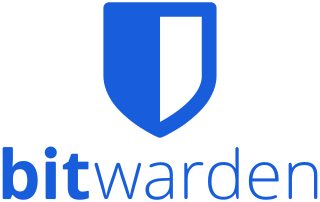
Bitwarden is a freemium open-source password management service that is used to store sensitive information, such as website credentials, in an encrypted vault. The platform hosts multiple client applications, including a web interface, desktop applications, browser extensions, mobile apps, and a command-line interface. The platform offers a free US or European cloud-hosted service as well as the ability to self-host.

iOS 13 is the thirteenth major release of the iOS mobile operating system developed by Apple for the iPhone, iPod Touch and HomePod. The successor to iOS 12, it was announced at the company's Worldwide Developers Conference (WWDC) on June 3, 2019, and released on September 19, 2019. It was succeeded by iOS 14, released on September 16, 2020.

iOS 14 is the fourteenth major release of the iOS mobile operating system developed by Apple for the iPhone and iPod touch lines. Announced at the company's Worldwide Developers Conference on June 22, 2020 as the successor to iOS 13, it was released to the public on September 16, 2020. It was succeeded by iOS 15 on September 20, 2021.
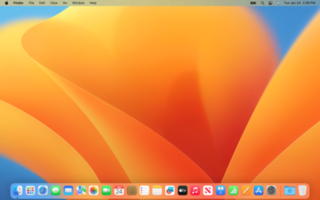
macOS Ventura is the nineteenth major release of macOS, Apple's operating system for Macintosh computers. The successor to macOS Monterey, it was announced at WWDC 2022 on June 6, 2022, and launched on October 24, 2022. macOS Ventura was succeeded by macOS Sonoma, which was released on September 26, 2023.
References
- ↑ Brandom, Russell (June 3, 2019). "Apple announces new sign-in tool to compete with Facebook and Google". The Verge . Retrieved June 4, 2019.
- ↑ "Hide My Email for Sign in with Apple". Apple Support. Apple Inc. Archived from the original on April 23, 2020. Retrieved May 23, 2020.
- ↑ "Manage the apps you use with Sign in with Apple". Apple Support. Archived from the original on May 23, 2020. Retrieved May 23, 2020.
- 1 2 Perez, Sarah. "Answers to your burning questions about how 'Sign In with Apple' works". TechCrunch . Retrieved June 13, 2019.
- 1 2 Wuerthele, Mike. "'Sign in with Apple' better but not perfect, says OpenID Foundation head". AppleInsider. Retrieved May 5, 2020.
- ↑ "App Makers Are Mixed on 'Sign In With Apple'". Wired. ISSN 1059-1028 . Retrieved May 5, 2020.
- ↑ "New Guidelines for Sign in with Apple - News - Apple Developer". developer.apple.com. Apple Inc. Archived from the original on May 23, 2020. Retrieved May 23, 2020.
- ↑ "Buttons - Sign in with Apple - Human Interface Guidelines - Apple Developer". developer.apple.com. Apple Inc. Archived from the original on May 23, 2020. Retrieved April 25, 2022.
- ↑ Cimpanu, Catalin. "OpenID Foundation says 'Sign In with Apple' is not secure enough". ZDNet. Retrieved May 5, 2020.